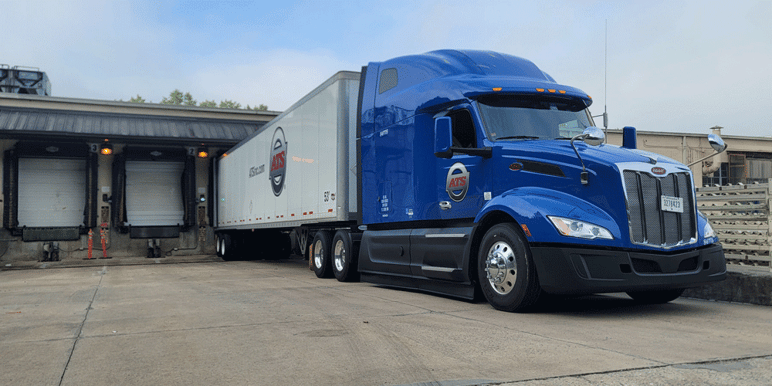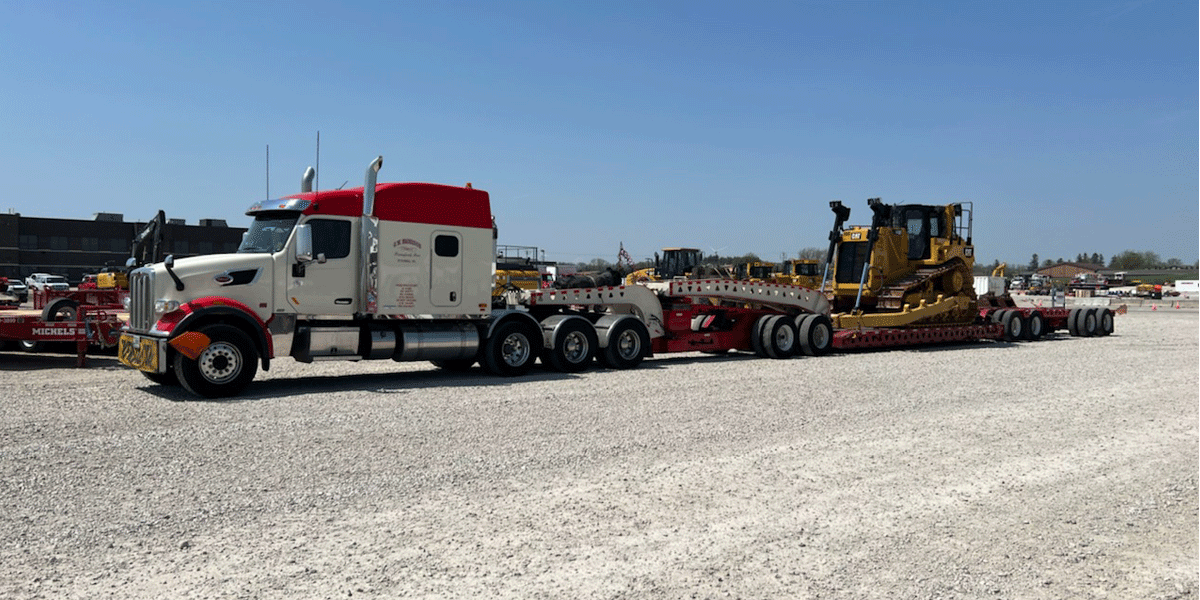Truck Owner-Operator Paths Compared: Choose the Right Road for You
Lars has been in the trucking industry his whole working life. He started working in the shop when he was just 16 years old. Lars spent about 10 years in operations before moving to driver recruiting. He spent five years in recruiting before joining the ATS team as the vice president of driver recruiting. He currently serves as the vice president of van operations. No day is ever the same in the trucking industry and Lars enjoys the challenge that presents.
Revised December 1, 2025
Owning your own truck definitely gives you freedom and greater earning potential, but deciding what kind of owner-operator you want to be can be overwhelming. Do you lease with a carrier company? Run under your own authority? Some combination of the two?
After 70 years in the trucking industry, Anderson Trucking Service (ATS) has learned a thing or two about all of the options available to truck owner-operators, and helping drivers understand these options is an important step in ensuring their long-term success and independence.
Key Points to Consider for Truck Owner-Operators
- There are two main types of owner-operators: contracted/leased under a company and independent, each with their own levels of freedom and financial responsibility.
- Do your research: Look into and compare different carrier companies' lease purchase programs and their terms (if a downpayment and/or credit check is required, if there's a purchase option, etc.)
- The best fit for you depends on your goals, experience, and tolerance for risk (the greater the risk, the greater the reward!)
Regardless of which way you go, you'll be your own boss. For most, that's the big appeal. So, aside from not being too hard on yourself, that means it's on you to manage fuel, maintenance, insurance, and taxes. It is a business, after all.
So let's explore the different types of truck ownership, the pros and cons of each, and which may be the best fit for you.
If you don’t decide to go the lease-purchase route, you can also secure financing on a truck from a bank and pay off the truck loan that way.
Types of Truck Owner-Operators
1. Leased-On Owner-Operators
This is a great (and popular) option for newer truck owner-operators. You get the benefit of company support, which means access to steady loads, fuel and maintenance discounts, and assistance with paperwork, while still getting the freedom to choose when and where you run. This option will give you the most support as an owner-operator and is the preference here at ATS.
How It Works
It's basically a partnership between you and the carrier company, where you provide the truck and the company finds you the freight — though, you make the decision on which loads to take and which to pass on.
But there is a process. Before you can lease your truck onto a company, it must first meet that company's standards and pass a Department of Transportation (DOT) inspection. Typical requirements include:
- Providing key documents (title, truck value, cab card, and Form 2290)
- Registering or plating your truck in the required state
- Completing company orientation and onboarding
- Following company operating and safety procedures (yes, you still have to do this even though it's your truck)
- Using safety and communication equipment provided
An important note: "Owning a truck" doesn't necessarily mean you own a tractor and a trailer. Even if you don't own a trailer, you can still operate as a "power-only" owner-operator, meaning you use your tractor to pull the company's trailers for a small rental fee.
Pros:
-
Consistent freight from a trusted carrier company
- Carrier company covers permits, insurance filings, and safety programs
- Less administrative hassle so you can focus on driving
Cons:
-
Limited freedom to choose loads outside of the carrier company
- Must follow carrier company's safety and operational policies
Takeaways
This setup is ideal for drivers who want steady freight and business stability without having to manage every single detail of running their business. But it's important to sign on with a carrier whose freight lanes and culture fit your lifestyle. You'll haul that company's freight exclusively, so take time to make sure their routes and pay model align with your goals.
2. Independent Owner-Operators (With Own Authority)
Now, when I say "independent" here, I mean independent. Under this model, you won't have any support from a carrier company. You are in complete control of your trucking business, which means you call all the shots — and carry all the responsibility.
When you operate under your own authority, it's on you to build your customer base, set a schedule, and book your own freight. It's how many of today's biggest trucking companies, including ATS, got started. So it just goes to show that the reward is there. If you're willing and able to take on the risk.
How It Works
Running under your own authority means you're not just a truck driver anymore. You're also a business owner. And, just like any other business owner, that means you manage everything: booking loads, tracking expenses, operational issues, and staying compliant with DOT regulations. You're also responsible for:
- Annual DOT renewal fees
- Insurance
- Fuel, plates, permits, and tolls
- Maintaining a safety score and passing DOT audits
- Managing cash flow for maintenance and emergencies: Consider setting up a maintenance or escrow account and securing a line of credit
You decide how to maintain your truck, where to get repairs, and whether to install in-cab cameras or not. As long as your truck meets DOT safety and inspection standards, there are no age limits or restrictions on your equipment or on how you choose to operate.
Pros:
-
Total independence: you control freight, schedule, routes, customers, and rates
-
Freedom to work with any brokers, shippers, or other carriers
-
Build your own brand and client base
-
Unlimited earning potential
Cons:
-
You're responsible for all compliance, insurance, permits, and billing
-
Higher overhead if freight slows down
-
Requires strong cash flow
Takeaways
If Spiderman taught us anything, it's that "with great power comes great responsibility." If you're organized, disciplined, safety-minded, and ready to build a standalone trucking company, then this is the setup for you. It offers unmatched freedom and earning potential, but it's demanding and can be stressful. All the responsibilities of running a business are on you. Keep to your goals and, over time, you could end up hiring drivers of your own and growing your own fleet. Again, this is how every major trucking company got its start.

Last Stop: Ready to Start Your Owner-Operator Journey?
As an owner-operator, you call the shots, and at ATS, we're here to help you with dependable freight, great customers, and the freedom to run your way.
If you’re interested in becoming an owner-operator with ATS, fill out an application today and speak with one of our driver consultants. Be sure to ask all of your questions. That's what our driver consultants are here for.
Only thinking about buying a truck? This guide will teach you about financing your first semi-truck.



